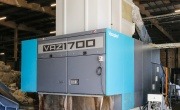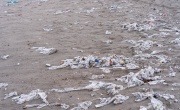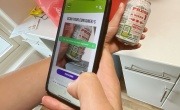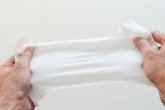£12m spent unblocking sanitary products from London’s sewers every year
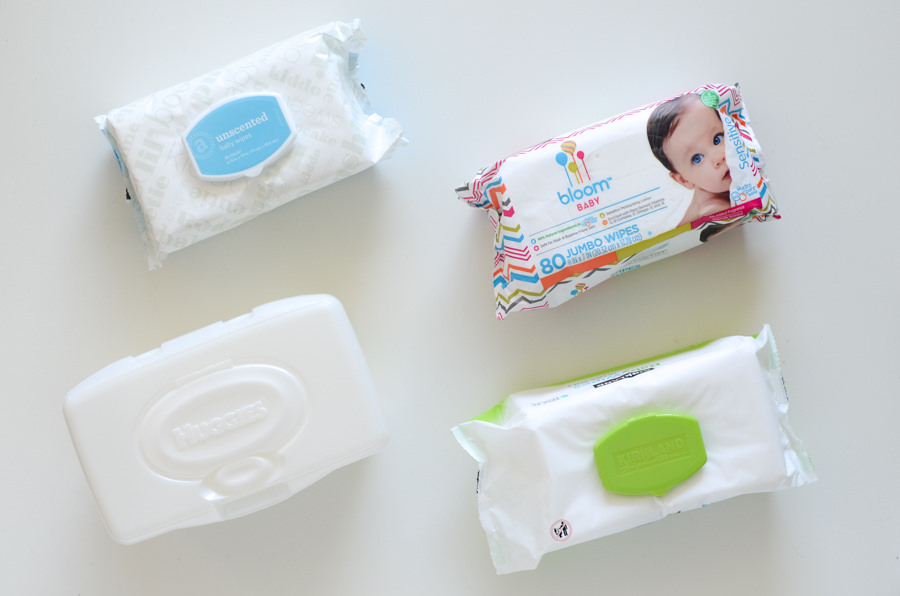
£12 million a year is spent on unblocking wet wipes and sanitary products from London’s sewers, according to a new report from the London Assembly Environment Committee.
Titled ‘Single-use plastic: Unflushables’, the report reveals the shocking extent of the damage caused by flushing away these items, which contain plastic and so do not biodegrade, contributing to giant ‘fatbergs’ beneath the city. Every day, on average, Thames Water removes 30 tonnes of unflushable material from its sites.
Stephen Pattenden, Waste Network Performance Manager at Thames Water, explained: “Many people don’t realise how wipes that get flushed can cause blockages and fatbergs in the sewers. They contain plastic so don’t break down in the same way as toilet paper does, instead clinging to the insides of the pipes and combining with fat and grease to form the fatbergs, which have become so common across London.”
The report is therefore calling for the Mayor of London, Sadiq Khan, to introduce a new ‘block buster borough’ initiative – this would involve working alongside Thames Water and local authorities to promote the correct disposal of unflushable items, for instance through the use of ‘bin it, don’t block it’ signs in public toilets. Installing sanitary waste bins in male public toilets has also been suggested, acknowledging that men are also users of wet wipes and other unflushable products.
In May, a spokesperson from the Department for Environment, Food and Rural Affairs (Defra) hinted that the government would be including wet wipes in its pledge to eliminate all avoidable plastic waste, saying: “We are continuing to work with manufacturers and retailers of wet wipes to make sure labelling on packaging is clear and people know how to dispose of them properly – and we support the industry’s efforts to make their customers aware of this important issue.”
Read more: Government considering action on wet wipes containing plastic
While there is no evidence that the government is yet pursuing a ban on disposable wipes, the London Assembly report calls for the Mayor to formally support a ban on those items containing plastic, as well as advising that only products that have passed a ‘robust flushability standard’, and display proper disposal information on their packaging, are allowed on the market.
The problem with disposable nappies
As well as those single-use items that are erroneously being flushed, the report looks at the huge amount of other disposable convenience products that end up in residual waste bins, including nappies, more than 100,000 of which are collected by local authorities every year. With recycling options currently limited for nappies and other sanitary waste, the vast majority of these are sent to incineration and landfill.
At the launch of the report on Tuesday (14 August), Chair of the Assembly Caroline Russell said: “Public awareness around single-use plastics, in terms of disposable water bottles and coffee cups, is high. But what about other daily products – wet wipes, nappies and period products? We urgently need to educate people not to flush these items down the toilet, and take some practical steps to help the situation.”
The Assembly is calling for financial incentives to be applied to reusable products, in order to break London’s reliance on disposable items. Over two thirds of London boroughs already offer a reusable nappy scheme and it is suggested that this be rolled out across all local authorities, along with measures to reduce waste like moving to fortnightly waste collections.
There will always be a market for convenient disposable products, while some items like incontinence products are an unavoidable waste stream – so further investigation into recycling techniques is also recommended.
There are currently very few facilities available for local authorities to recycle nappies and other absorbent hygiene products (AHP) in the UK. North American firm Knowaste operated a plant in West Bromwich which closed in 2013, leaving its council clients at a loss. In Wales, Natural UK recycles AHP for Rhondda Cynon Taf and a few other Welsh authorities. However, London boroughs are currently unable to recycle this waste stream, meaning all AHP waste goes into landfill or incineration.
The full report into unflushables can be read on the London Assembly website.

